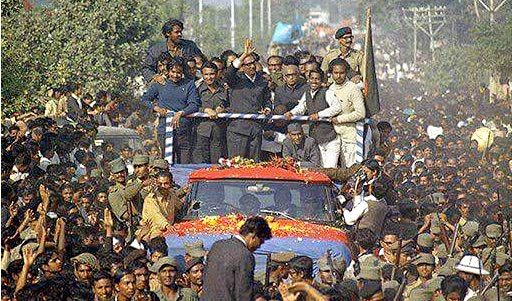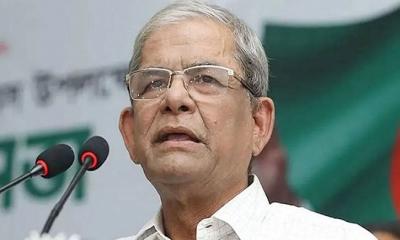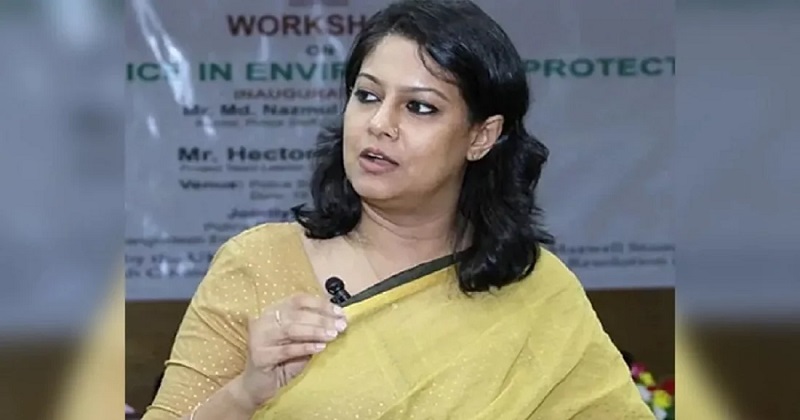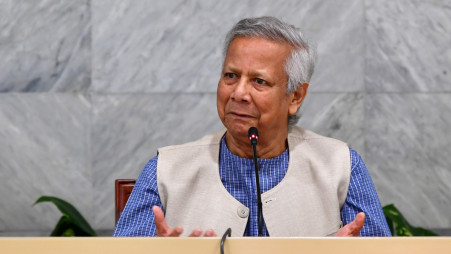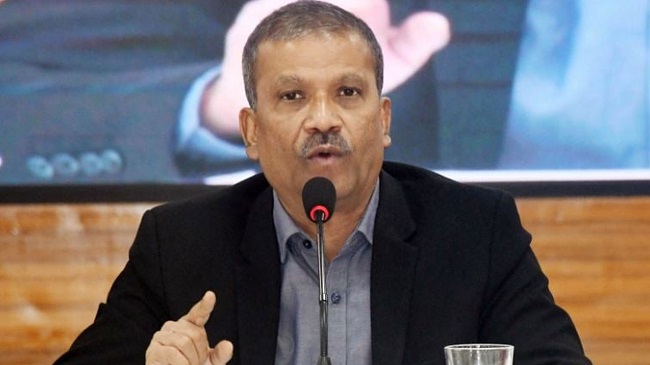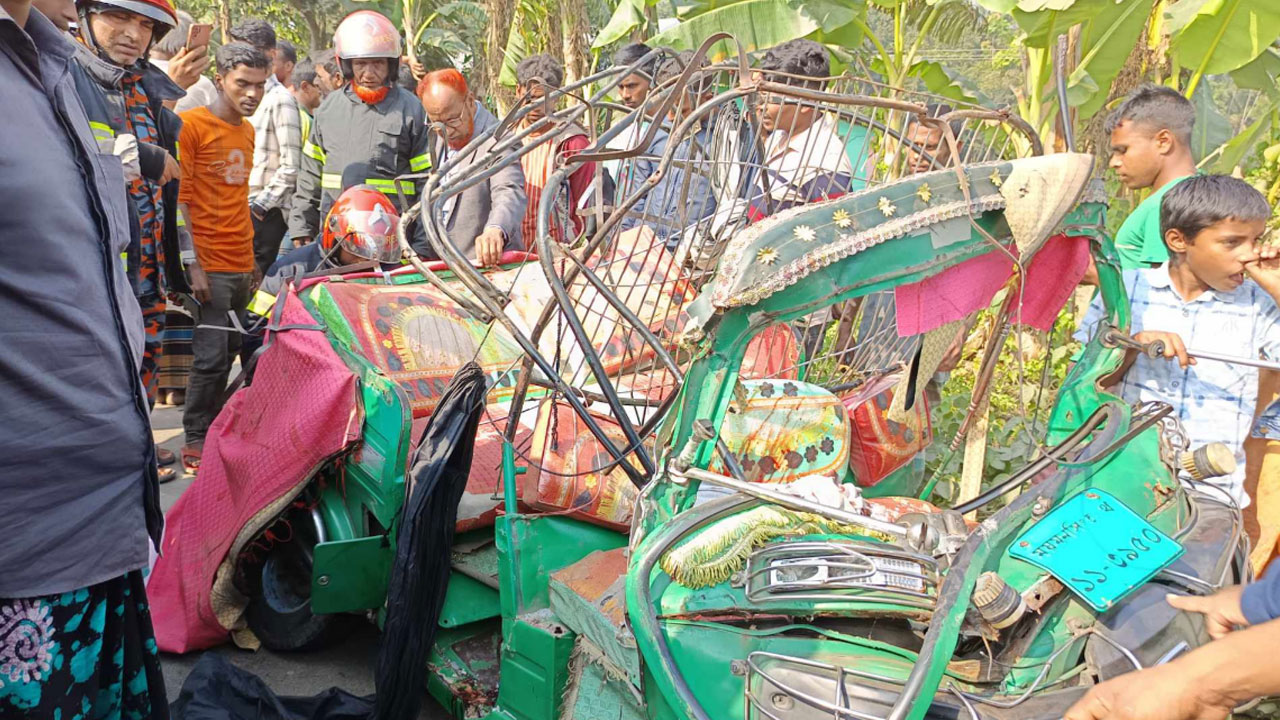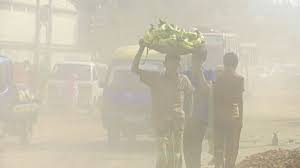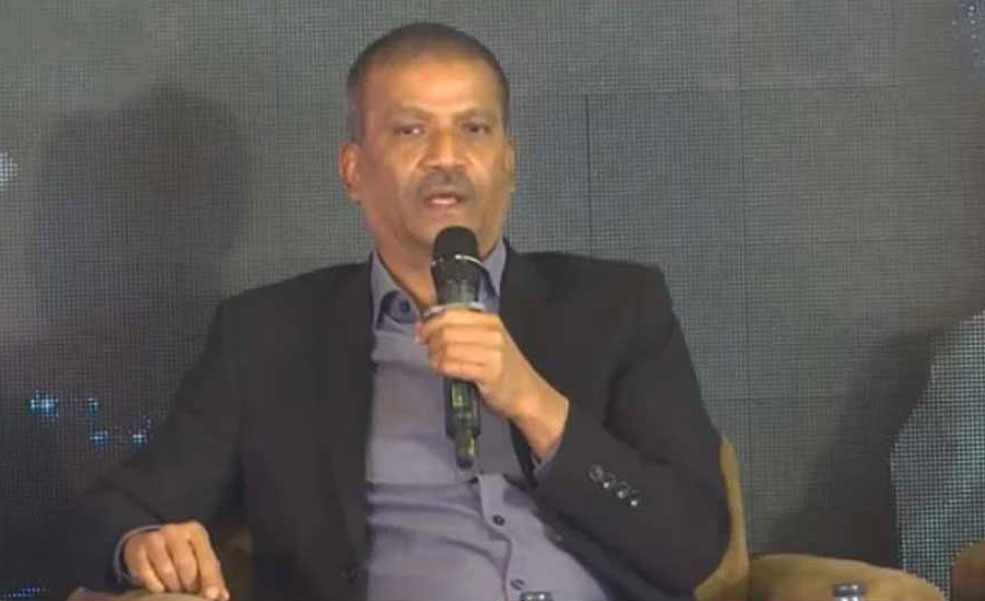Today (Sunday) is the 49th historic Homecoming Day of the greatest Bangalee of all time, the Father of the Nation Bangabandhu Sheikh Mujibur Rahman.
The grateful people of the country will observe the historic Homecoming Day of Bangabandhu today in a befitting manner.
On this day in 1972, Bangabandhu Sheikh Mujibur Rahman returned to the independent and sovereign Bangladesh after captivity in a Pakistan jail for more than nine and half months.
And the Bengali nation got real freedom after Bangabandhu returned home on this day in 1972.
Despite the victory against Pakistan on December 16, 1971, the Bengali nation did not get the real taste of independence as Bangabandhu was imprisoned in Pakistan.
And after being freed from prison in Pakistan on January 8, 1972, he came to Bangladesh on January 10 and the Bengali nation got the real taste of liberation.
This year ‘Homecoming Day’ has added an additional flavour and extra significance as it coincided with the Father of the Nation’s birth centenary celebrations, just three months ahead of the golden jubilee of the country’s independence.
The government has taken elaborate programmes marking Bangabandhu’s Home Coming Day will be observed maintaining health guidelines due to ongoing COVID-19 pandemic.
Apart from the government, different political parties and socio-cultural organisations have also chalked out programmes to observe the day in a befitting manner. But all programmes will be observed maintaining health guidelines in face of the global pandemic coronavirus (COVID-19).
Earlier on March 26 in 1971, Bangabandhu proclaimed independence of Bangladesh and urged people from all walks of life to participate wholeheartedly in the nation’s War of Liberation.
Immediately after the proclamation of independence, Bangabandhu was arrested by Pakistani military junta and then flown to West Pakistan to keep him in prison there.
Bangabandhu was subjected to inhuman torture in the Pakistan jail where he had been counting moments for the execution of his death sentence that was pronounced in a farcical trial.
On 16th December in 1971, Bangladesh achieved victory after nine-month intense war against the Pakistani occupation forces.
The hearts of millions of people pulsated with the joy of freedom on this day. And the hearts of those who had lost their near and dear ones were bruised with agony.
But country’s all people were worried as their great leader Bangabandhu Sheikh Mujibur Rahman who inspired the Bangalee nation had not returned yet after the 25 days of the country’s liberation.
Under his undaunted leadership, the Bangalee nation earned the ultimate victory through the nine-month war.
The defeated Pakistani rulers were finally compelled to release Bangabandhu from jail.
The victory of the Bangalees attained its fulfillment with his release.
The liberty was in the air. The slogan of “Joy Bangla” in bold voices was reverberated at Tejgaon Old Airport and its surrounding areas on January 10, 1972.
On this day, minutes after the daybreak, emotion choked tens of thousands of newly freed Bangalees of his Bangladesh gathered there, even after knowing that the Father of the Nation is expected to arrive in the early afternoon.
With bated breath, they were waiting to welcome the liberator back to a land his inspiring leadership had propelled to freedom through a well-fought, tear-filled and blood-soaked struggle of epic proportions.
As the government declared ‘Mujib Year’ from March 17, last year to March 17, 2021, this year, the observance of the Bangabandhu’s Homecoming Day is very significant and important.
On January 10 in 1972, in the reception line on the tarmac, anxiety and restlessness started gripping all the men who had conducted the struggle for liberation as the war-time Mujibnagar government.
Eagerness intensified among the young student leaders, whose intense patriotism would always remain as a glaring example of glory for generations to come, converged to gather Bangabandhu to their bosom.
As soon as the comet aircraft bringing Bangabandhu home landed at Tejgaon, something magical happened. The wait for him by the people which seemed like an eternity came to an end.
“As you can see, gentlemen, I am alive and well," said the Bengali leader in a cheerful voice, hitting back at all the propagandas the then Pakistan government tried to establish against him calling as a “prisoner of Pakistan” during the confinement.
He was addressing a crowded news conference at Claridge's, London days before his arrival to Bangladesh. On January 8, Pakistan’s new leader bade him a goodbye at Rawalpindi's Chaklala airport.
“The nightingale has flown” commented Bhutto after Bangbandhu set for Bangladesh.
Upon arrival, Bangabandhu seemed tired after all those months in solitary confinement in Pakistan. More than that, he was clearly overwhelmed by the ecstatic manner in which his people, the newly freed Bengalis of his Bangladesh, were welcoming him home.
He was leaner than he was when the Pakistan army abducted him and took him to Pakistan in March 1971.
His hair was disheveled. With an inimitable smile on his lips, he ran his hand through his hair as it fell over his forehead.
There was fatigue written all over him. Yet there was the power in those eyes that held the crowd in its gleam.
He wept. For the first time in his public career, before the world, Bangabandhu shed tears in remembrance of the terrible ravages Bangladesh had gone through in the preceding nine months.
With him, the nation wept too, reflecting how seventy five million Bengalis had worried about his safety, how they had prayed for his life and for him to return home.
Hours before, Bangabandhu had been welcomed as the president of Bangladesh in Delhi. Seventy five million Bengalis watched their head of state inspect an honour guard before setting off for the Race Course, the same where echoes of his March 7, 1971, clarion call to liberty were yet being heard.
The truck bearing Bangabandhu inched its way forward. That brief distance from the airport to the Race Course had turned into human sea. Happy crowds had occupied every bit of space. Every rooftop was an image of delighted faces -- men, women and children. Perching themselves on the branches of trees, youths shared the glory too. Every conversation was but two simple, purposeful, energising words.
In that winter evening, Bangabandhu spoke to the country for the first time since March 1971. The nation listened to the words coming out from his heart, as they always did. His voice was choked with emotion, but that did little to mar the eloquence of his expression. Again, the nation witnessed Bangabandhu's oratory at its peak of grandeur. It was Joy Bangla.
Bangabandhu, the undisputed leader of the nation and supreme commander of the country’s Liberation War, returned to the sacred soil of independent Bangladesh via London and New Delhi on January 10 in 1972, after 290 days of confinement in Pakistan jail.
Though the final victory in the nine-month-long bloody War of Liberation was achieved defeating Pakistani occupation forces on December 16 in 1971, the nation’s expectations were fulfilled and the people got the real taste of victory with the homecoming of Bangabandhu on January 10, 1972.
On reaching Dhaka (Tejgaon) airport in the afternoon on January 10, Bangabandhu was greeted by tens of thousands of jubilant people who had been eagerly waiting to see the beloved leader since the final victory on December 16 in 1971.
From airport Bangabandhu was moved to the Race Course Maidan (now Suhrawardy Udyan) where he addressed a spontaneous reception accorded to him by the cheerful countrymen believed to be one million.
He recalled with respect the contribution of all during the war and urged the people to rebuild the war-ravaged country.


